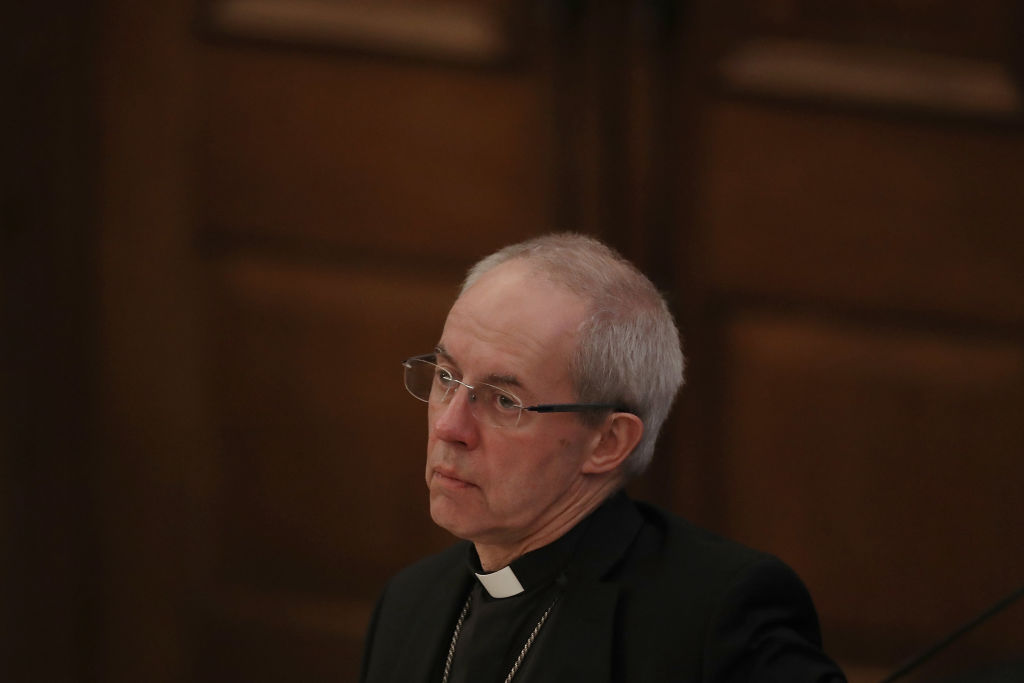God knows one tries, but there are times when it’s difficult to take the Church of England entirely seriously. And the news that it is considering doing away with the seal of confession, whereby clergy are absolutely prohibited from disclosing the sins penitents bring to them in confession, is just such an occasion, even if the proposal gets nowhere. In the run-up to the General Synod (you did realise it’s happening today, didn’t you?), the bishop at Lambeth, the Rt Rev Tim Thornton, reported that there were “differences of view about the retention or abolition of the Seal” among bishops. It was raised as an issue by the church’s Independent Inquiry into Child Sexual Abuse and is due to be discussed by various committees this year, prior to a meeting to decide on the “pros and cons of retaining the seal” in December.
Pros and cons? The Australian Catholic bishops, who are facing a legal requirement on priests to share details of child abuse revealed in confession with the police, have said simply that Catholic priests should be prepared to go to prison rather than break the seal of confession. It already attracts the ultimate ecclesiastical sanction, excommunication. You can confess to murder, and as the old gag has it, the response may simply be: “how many times?”
But then, confession is part of Catholic theology and practice, one of the seven sacraments; it’s an obligation, not an option.
Individual confession (as in John 23) is far more problematic in Protestant practice; indeed in the CofE, it’s mostly something Anglo-Catholics do. Most broad church Anglicans wouldn’t dream of going to confession, though the general confession in an Anglican service does offer an opportunity for expressing repentance for sin. For old fashioned Protestants, if there are any left of that vanishing breed, confession is a bit, well, papist – the unspoken assumption being, you don’t know what Catholic priests get up to in that box, do you? Which may be why it simply didn’t register on the radar when the diocese of Canterbury issued guidance to penitents this year that they should “not divulge in confession something which would legally compromise the position of the priest”. Our obsession with child abuse is such that we can think of nothing else but paedophilia in this context, but quite a lot of sins are also criminal offences, so what does an Anglican cleric do in the unlikely event that a murderer in Canterbury confesses to them? The guidance is a disgrace even to the CofE.
As I say, for Australian Catholic bishops the matter is far more serious. It too is caught up in the current controversies over child abuse which have brought Cardinal Pell to the courts. Following a recommendation from the Royal Commission on child abuse, South Australia has passed laws extending mandatory reporting to priests who are told about paedophilia, including in confession; New South Wales will shortly decide whether to follow suit. Ireland considered a similar move during a previous bout of public indignation about abuse. These are grave incursions by the state into a profoundly serious element of the free practice of religion.
In practice, few priests nowadays wouldn’t use a confession by an abuser not just to absolve them but as an opportunity to tell them to stop doing it, at once, and to suggest what they might do to indicate their penitence – perhaps including handing themselves over to the police. But to oblige a priest to violate the seal of the confessional, to betray the trust of the penitent, to undermine the absolute confidence a sinner must have in a priest before he confesses a sin that may also be a crime – nothing doing. Confession is the ultimate safe space for profound self exposure. The CofE should know that much; do they actually want sinners to repent? Yet another reason, I’m afraid, not to take it seriously.







Comments